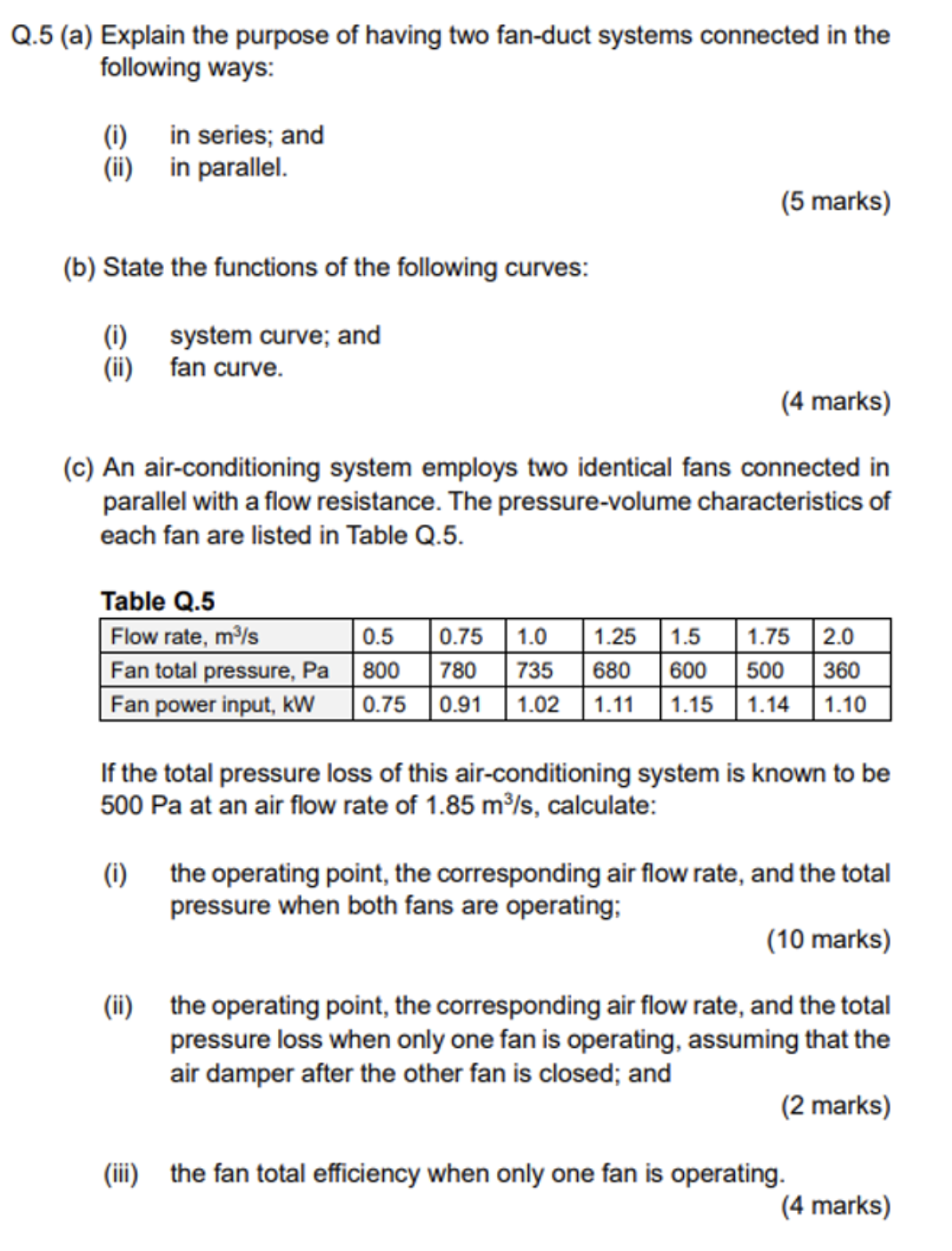Answered step by step
Verified Expert Solution
Question
1 Approved Answer
Q.5 (a) Explain the purpose of having two fan-duct systems connected in the following ways: (i) (ii) in series; and in parallel. (b) State

Q.5 (a) Explain the purpose of having two fan-duct systems connected in the following ways: (i) (ii) in series; and in parallel. (b) State the functions of the following curves: (i) system curve; and (ii) fan curve. (5 marks) (4 marks) (c) An air-conditioning system employs two identical fans connected in parallel with a flow resistance. The pressure-volume characteristics of each fan are listed in Table Q.5. Table Q.5 Flow rate, m/s Fan total pressure, Pa Fan power input, kW 0.5 0.75 1.0 1.25 1.5 1.75 2.0 800 780 735 680 600 500 360 0.75 0.91 1.02 1.11 1.15 1.14 1.10 If the total pressure loss of this air-conditioning system is known to be 500 Pa at an air flow rate of 1.85 m/s, calculate: (i) the operating point, the corresponding air flow rate, and the total pressure when both fans are operating; (10 marks) (ii) the operating point, the corresponding air flow rate, and the total pressure loss when only one fan is operating, assuming that the air damper after the other fan is closed; and (2 marks) (iii) the fan total efficiency when only one fan is operating. (4 marks)
Step by Step Solution
★★★★★
3.52 Rating (165 Votes )
There are 3 Steps involved in it
Step: 1
ANSWER ai In Series When two fanduct systems are connected in series it means the airflow passes through one fan and then through the other The purpos...
Get Instant Access to Expert-Tailored Solutions
See step-by-step solutions with expert insights and AI powered tools for academic success
Step: 2

Step: 3

Ace Your Homework with AI
Get the answers you need in no time with our AI-driven, step-by-step assistance
Get Started


